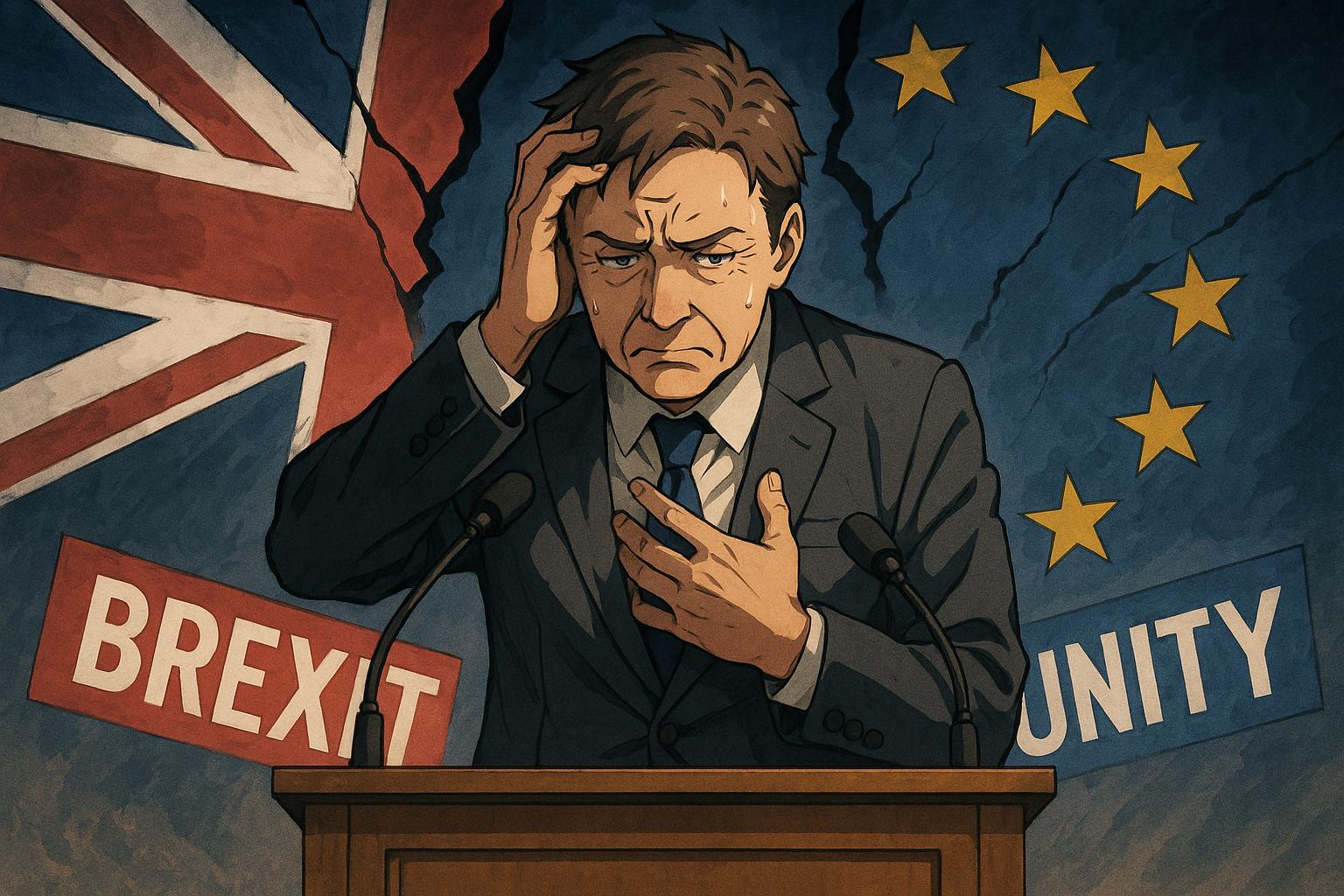The recent exchange at Prime Minister's Questions highlighted a growing disconnect between leadership and public sentiment regarding Brexit, as Keir Starmer faced pointed questions from Plaid Cymru’s Liz Saville Roberts about the consistency of his beliefs since taking office. Rather than a policy-driven debate, the PM opted for a sharp retort, dismissing Roberts' concerns as "talking rubbish." This moment encapsulates the tensions present within the Labour Party as it navigates the complexities of post-Brexit Britain, compounded by the party's shifting stance on immigration.
Starmer's recent remarks about Britain as an “island of strangers” during a speech on immigration drew immediate criticism. This phrase echoed Enoch Powell’s infamous "rivers of blood" speech from 1968, a moment that stirs deep historical scars concerning race and identity in Britain. Starmer's insistence on crafting a narrative of unity, “a nation that walks forward together,” stands in stark contrast to Powell’s divisive rhetoric, yet critics question whether his new immigration policies truly reflect that ethos.
The Labour leader’s strategy appears aimed at appeasing discontent among Brexiteers, particularly regarding the reciprocal youth mobility scheme discussed ahead of the upcoming “Brexit reset” summit with the EU. Yet this move to tighten immigration seems to alienate many traditional Labour supporters, prompting anxiety that Starmer no longer represents the progressive ideals they once endorsed. As Labour reels from internal conflicts about identity and direction, the party’s future continues to oscillate between the nostalgia of its roots and the demands of a changed political landscape.
In a striking juxtaposition, entertainment mogul Simon Cowell weighed in on the Brexit debate, asserting that the public had insufficient understanding of what they were voting for during the 2016 referendum. Speaking on Elizabeth Day’s podcast, he boldly suggested that if a second referendum were to occur, he believes the outcome would favour remaining in the EU. Cowell’s idea to host a televised debate titled “You The Jury,” designed to present both sides of the argument, reflects a growing demand for clearer dialogue on such a pivotal issue. This proposal contrasts sharply with the political discourse seen in Westminster, where soundbites often overshadow substantive argumentation.
As Starmer prepares to engage with key figures from the European Union, his announcement of immigration policies deemed "immoral and stupid" by some commentators signals a retreat from earlier positions that might have advocated for a more open approach to European collaboration. The stark irony lies in the observation that a leader within Labour, historically associated with pro-European sentiments, may now appear less informed about Brexit than a reality TV judge.
Amidst the ongoing debates, the nation finds itself at a crossroads, grappling with the ramifications of its choices. As public opinion remains volatile, the prospect of a second referendum gains traction, backed by voices as influential as Cowell's. The urgency for a richer, more inclusive conversation about the future of Britain post-Brexit is echoed through the growing discontent with present leadership, leaving many to wonder whether the quest for a unified national identity can still resonate amidst the fractures of recent political history.
Reference Map
- Paragraph 1: 1
- Paragraph 2: 1
- Paragraph 3: 1
- Paragraph 4: 1
- Paragraph 5: 1
- Paragraph 6: 1
Source: Noah Wire Services
